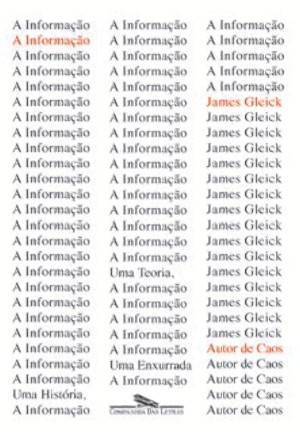What do you think?
Rate this book


528 pages, Paperback
First published March 1, 2011


The library will endure; it is the universe. As for us, everything has not been written; we are not turning into phantoms. We walk the corridors, searching the shelves and rearranging them, looking for lines of meaning amid leagues of cacophony and incoherence, reading the history of the past and of the future, collecting our thoughts and collecting the thoughts of others, and every so often glimpsing mirrors, in which we may recognize creatures of the information.
Logic might be imagined to exist independent of writing – syllogisms can be spoken as well as written – but it did not. Speech is too fleeting to allow for analysis. Logic descended from the written word, in Greece as well as India and China, where it developed independently. Logic turns the act of abstraction into a tool for determining what is true and what is false: truth can be discovered in words alone, apart from concrete experience. Logic takes its form in chains: sequences whose members connect one to another. Conclusions follow from premises. These require a degree of constancy. They have no power unless people can examine and evaluate them. In contrast, an oral narrative proceeds by accretion, the words passing by in a line of parade past the viewing stand, briefly present and then gone, interacting with one another via memory and association.
Thomas Hobbes, in the seventeenth century, resisted his era’s new-media hype: “The invention of printing, though ingenious, compared with the invention of letters is no great matter.” Up to a point, he was right. Every new medium transforms the nature of human thought. In the long run, history is the story of information becoming aware of itself.
The macromolecules of organic life embody information in an intricate structure. A single hemoglobin molecule comprises four chains of polypeptides, two with 141 amino acids and two with 146, in strict linear sequence, bonded and folded together. Atoms of hydrogen, oxygen, carbon, and iron could mingle randomly for the lifetime of the universe and be no more likely to form hemoglobin than the proverbial chimpanzees to type the works of Shakespeare. Their genesis requires energy; they are built up from simpler, less patterned parts, and the law of entropy applies. For earthly life, the energy comes as photons from the sun. The information comes via evolution.